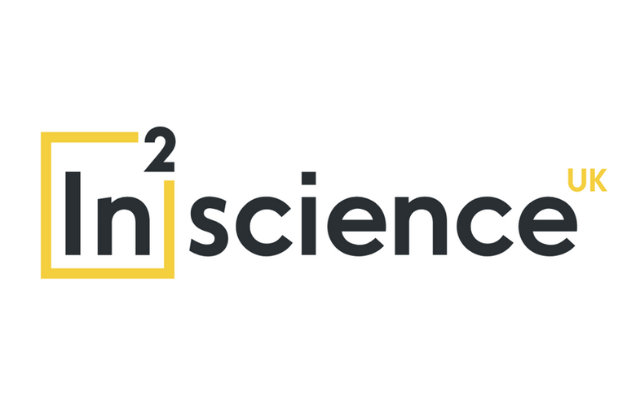In2ScienceUK Summer Programme infuses Year 12s with enthusiasm for careers in STEM
During the week of 7 August, Dr Tania Maffucci and her team led Year 12s in a fantastic summer course to give them a valuable insight and practical taster of what working in a STEM career could be like.

In2ScienceUK logo
In2scienceUK empowers young people from disadvantaged backgrounds to achieve their potential through life changing opportunities that give them insights into STEM careers and research and boosts their skills and confidence. It exists to unlock the potential of young people from disadvantaged backgrounds and boost diversity and inclusion in the sector to ensure the UK remains at the forefront of science, technology, engineering, and maths (STEM) based industries.
With salaries in STEM being 20% higher than other sectors, this helps young people progress to better-paid jobs and economic stability.
In2scienceUK works with researchers and STEM professionals at partner institutions, such as the Blizard Institute, who can share their insights and expertise by hosting students for one or two week work experience placements during the summer.
The summer programme at the Blizard Institute included:
- a presentation of the week, short lecture on the main research question to be addressed during the week and how to design experiments and daily discussions around the experiments
- learning key technical skills (use of micropipettes, dilutions)
- performing a set of experiments
- a visit to the Centre of the Cell, the first science education centre in the world to be located within working biomedical research laboratories
- programming in Python (and other programmes)
- an overview of all the data of the week, how to analyse and interpret them
- the chance to talk to undergraduate students and postdoctoral fellows to ask them some questions.
Dr Maffucci said: “The week was designed to introduce the students to some laboratory techniques and, more importantly, to explain to them how a research question is addressed. The main 'experimental plan' was to test the effect of two drugs on cancer cell growth and experiments were designed to validate the inhibitors (Western blotting analysis of cell lysates) and to investigate where the targets of the inhibitors are within a cell (immunofluorescence).
“The students received information around the rationale for the study as well as the practical steps, including the importance of correct use of PPE. I also provided printed materials, with the experimental steps and some background information on all the different techniques to use. Two copies of the material were given to the students: one to use in the lab and one to take home. This material also contained exercises if they wanted to practice.”
“A lot of effort went into planning and running the programme, but I found it hugely rewarding and exciting.”
Dr Maffucci also thanked everyone who helped run the programme: Dr Eleri Jones, Dr Sarah Morgan, Dr Simon McArthur, Dr Isabell Nessel, Dr Eleni Hagi-Pavli, Rachel Wilson, Alex Wooltorton and everyone who offered to answer the students’ questions around life at university and research. Dr Maffucci also thanked the Blizard Laboratory Management team and the Centre of the Cell team (in particular Anna Lambert) for their help.
The students had many positive things to say about their time on the course, including nominating Tania for ‘Host of the Week’:
"Tania has been welcoming from the very start of the placement. I believe she should be Host of the Week as she has organised a range of different activities for us, including time in the lab but also looking at different areas in biology like bioinformatics and learning programming which I am grateful for, as some careers in biology are not as clear as others."
“We have also had the chance to truly understand how an experiment is planned and conducted in real life. We didn't just go in the lab and do some pipetting, she explained the science behind the experiment and why it is being done, as well as all the controls that they would consider, discussing it before going to the lab. On the first day, we were taught important practical techniques like pipetting and dilution, which I found very helpful (as we would need careful technique for the next days where we did Western blotting and immunofluorescence). When giving us feedback, she is very kind and lets us know how to improve the way we do things in the lab as part of following risk assessments and handling different chemicals.”
“Not only did she organise a great week so that it has some structure, she also has been very flexible in giving breaks when needed and understands that we are not used to working in the lab for as long as they do in their everyday life. I think she is a great person to look up to, is very approachable, and can explain things very well. I have learnt so much already and I am glad to have Tania as a host!"
"I had lots of fun during my placement and was able to do things that were completely different to the usual practicals that I do at school. She was also very informative, and I could understand what I was doing at each stage of the experience. I can confidently say that Tania has inspired me and has definitely become my role model.”
Dr Maffucci also thanked everyone who helped run the programme: Dr Eleri Jones, Dr Sarah Morgan, Dr Simon McArthur, Dr Isabell Nessel, Dr Eleni Hagi-Pavli, Rachel Wilson, Alex Wooltorton and everyone who offered to answer the students’ questions around life at university and research.
Congratulations to Tania and the whole team on providing an incredible experience.